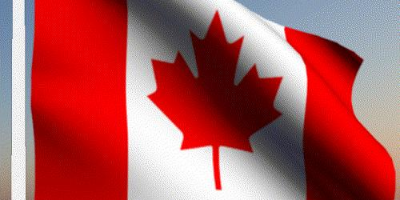1 juill. 1867 - Canada's Born!
Description:
New Brunswick, Nova Scotia and the province of Canada were declared by the Dominion of Canada, with John A. Macdonald the first prime minister at noon on July 1, 1867. Upper Canada was called Ontario and the lower part of Canada was called Quebec. It was usually sunny in most parts of the new Dominion. The noise of a brass band could be heard in many towns. In Toronto, children were given Union Jacks to wave and an ox was roasted in front of St. Lawrence Hall, with the meat then distributed to the poor. In Ottawa, a military review on Parliament Hill fired a salute. The soldiers forgot to take the ramrods out of their rifles and the iron rods arched over Sparks Street. July 1 is a statutory holiday in Canada unless it falls on a Sunday; then it moves to July 2. All provincial governments observe this day. Many organizations, businesses and stores are closed, although some bookstores, drugstores and gas stations may be open. Post offices are closed. As Canada Day falls in the Canadian summer holiday period, all schools are closed. Public transport services may operate to their usual or a reduced timetable. In some areas, extra services are provided for large-scale events. Street closures due to concerts, parades and festivals may cause some local disruption to traffic. In the spring of 1864, all three governments passed resolutions declaring a warm interest in having a conference on the subject. But nothing was done; it was only when the Province of Canada announced its interest in being asked to attend such a meeting that the Maritime governments woke up. If the Province of Canada was going to attend, then there had to be a conference for them to come to. Charlottetown was appointed as the place, Prince Edward Island would not attend otherwise and 1 September 1864 was chosen as the date. After achieving responsible government, politicians in Canada West began moving for true representation by population. In the 1840s, Canada West benefitted from having a disproportionately large number of seats in the legislature, thanks to a smaller population than Canada East. By the 1850s its population was the bigger of the two, and reformers supported the campaign for representation by population – in other words, more seats for the West.In Canada East, although Confederation was opposed by A.A. Dorion's Parti Rouge, it was supported by the dominant political group, the Squares under George-Étienne Cartier, Hector Langevin and Alexander Tilloch Galt. By 1867 they had the necessary support of the Catholic Church. Confederation was justified in public by the arguments that French Canadians would get back their provincial identity and their capital would once more be Québec; the Anglophone domination of Ottawa feared by French Canadians would be mitigated by the presence of strong French Canadian representation in the federal cabinet; and Confederation was the least undesirable of the changes proposed. Charlottetown and Québec Conferences.By Shambhavi
Ajouté au bande de temps:
Date:
1 juill. 1867
Maintenaint
~ Il y a 158 ans
